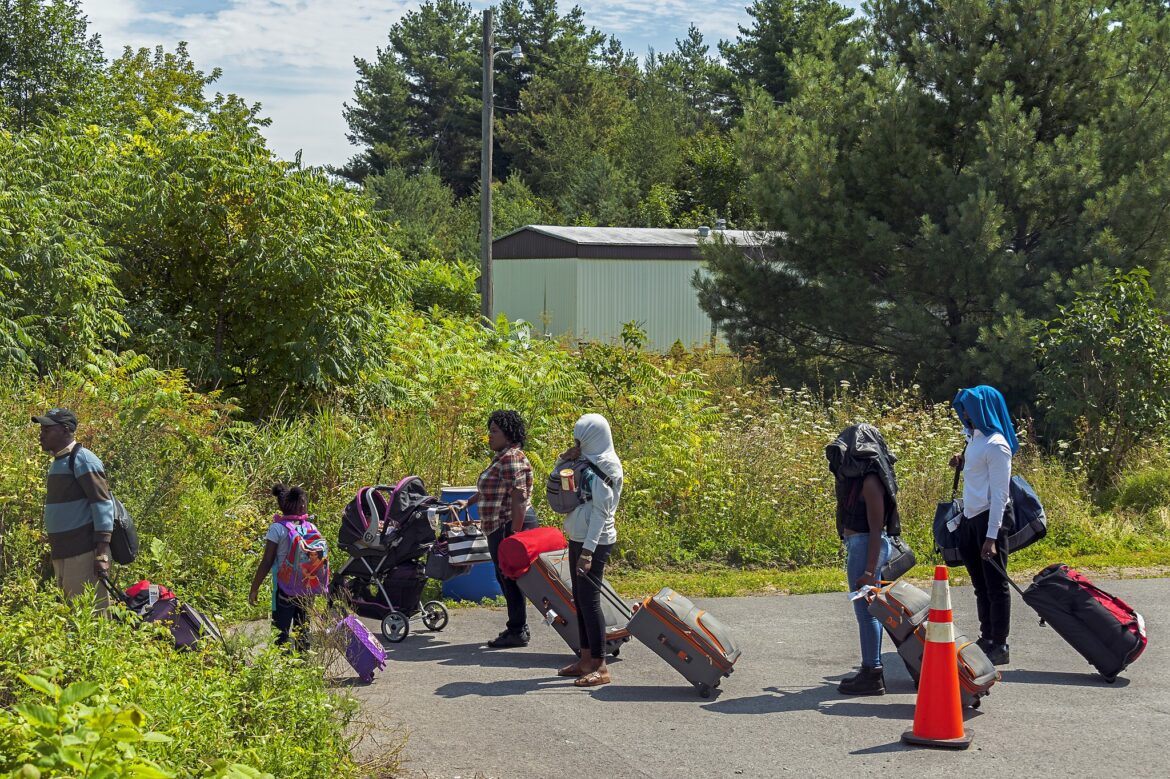Roxham Road: the site where around 39,000 refugees crossed unofficially into Quebec from the New York state in the past year, many of whom sought asylum in the province. Canada, as a signatory of the International Refugee Convention, has a duty to adjudicate most refugee claims with limited exceptions. However, Quebec’s Premier Francois Legault has shut down entry into the province citing capacity being reached, and demanding more control over who can enter the province — specifically in terms of family reunification — for which Ottawa currently dictates. As a consequence, close to 5,000 migrants from the U.S. who came into Quebec have been forced to make temporary settlements in Niagara, Cornwall, and other cities in Ontario.
A concern arising from this derailment is the language barrier between many French-speaking migrants and the unexpected temporary residence in a non-Francophone province. These migrants, about 53% of which are arriving from Haiti and French-speaking parts of Africa, came to Canada with the express intent of residing in Quebec where their French language roots would be easily adaptable. However, reports of various barriers for these migrants have arisen, from finding healthcare without a translator to obtaining key information about their future, such as understanding why they have been bussed out of Quebec, and where they will ultimately be able to stay in Canada.
This uncertainty for Francophone migrants calls into question Legault and the Coalition Avenir Québec’s (CAQ) provincial policies concerning the future of the French language in Quebec. Legault’s fear of a “Louisianization” of the province — referencing a decline in French, as has happened in the U.S. state by the nineteenth century — has driven many controversial policies. One example is Bill 96, also known as “An Act respecting French, the official and common language of Quebec.” For non-french-speaking immigrants, Bill 96 will impact the kinds of resources they can receive as newcomers to the province; after the first six months of residing in the province, “government services will be exclusively in French, unless it falls under one of the exceptions of health, public safety or the principles of natural justice.” As Bill 96 demonstrates, increasing the usage of French in the province is of utmost importance, so why force Francophones elsewhere?
Quebec’s Premier cannot have it both ways. On the one hand, Legault expresses his primary concerns to be over the ‘dilution’ of the French language through immigration to the province, drawing attention to declining rates of French spoken in the home and the workplace. On the other, by limiting the options for French-speaking immigrants, stating that exceeding the 50,000-person provincial cap will be suicidal, he loses the opportunity to make good on his goals. At the same time, he reveals that his anti-immigration sentiments outrank his emphasis on the French language in the province, with some pundits arguing that this emphasis on immigrants is more pre-election posturing than reality.
Quebec’s position as a center for French speakers in North America is not to be discounted, and maintaining the language is a valid concern. However, according to Louisiana history experts, Legault’s primary attacks on immigrants have little merit when the picture is much more complex than the history of dilution that the Legault cites. Furthermore, as the situation surrounding Roxham Road shows, his rhetoric further harms his own stated goals for the province in exchange for political gains. Most importantly, we must remember the voices of those endangered by Quebec’s immigration policies and to remain critical of how they are portrayed.
Edited by Katherine Lake
Justine Delangle is in her first year at McGill University, pursuing a B.A. in International Development Studies. She is a first time staff writer for Catalyst, with an interest in the politics of cultural power.

